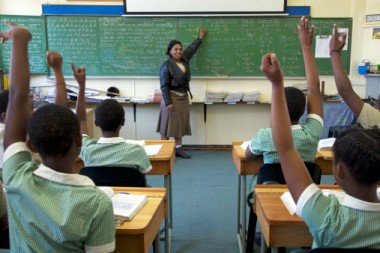A partnership of private donors and foundations has announced an $8 million call for proposals seeking new ideas and innovative solutions to address critical issues that impair secondary education learning for marginalized populations.
Through the Partnership to Strengthen Innovation and Practice in Secondary Education (PSIPSE), Dubai Cares, Echidna Giving, the John D. and Catherine T. MacArthur Foundation, The MasterCard Foundation, and an anonymous donor announced the fourth PSIPSE call for proposals with a geographic focus on Kenya, Malawi, Tanzania and Uganda.
The call for proposals announced yesterday will lead to funding in 2017 in support of projects that pilot innovations, expand and adapt successful models, inspire collaborations and research critical questions about how to improve quality in secondary education while aiming to create systemic change in this sector at the local or national level.
Projects are expected to apply innovative approaches that enable teachers to better act as facilitators of learning, improve adolescents’ learning outcomes, and promote 21st century employment-relevant skills.
While speaking, Chief Executive Officer at Dubai Cares, Tareq Al Gura, said, “The world has made impressive strides in providing primary education to children Worldwide. However, without opportunities for secondary education, children have little chance to improve their livelihoods, and the progress made at primary level could be jeopardized. Through this call for proposals by PSIPSE, we aspire to foster novel approaches to gain ground in the quest for quality secondary education”.
The PSIPSE was formed in 2012 on the proven premise that quality secondary school education is measurably associated with positive effects on health, well-being and productivity of youth. Yet secondary education and quality relevant learning experiences for secondary school aged youth remain scarce in the developing world, particularly for marginalized girls.
Since the 2015 announcement of grants, the PSIPSE has focused on an overarching Monitoring, Evaluation, and Learning framework that will help the PSIPSE better understand the impact of its interventions and ensure that its future grant making builds on evidence from the portfolio of 58 projects in 8 countries for which PSIPSE has provided of over $50 million in funding to date.











